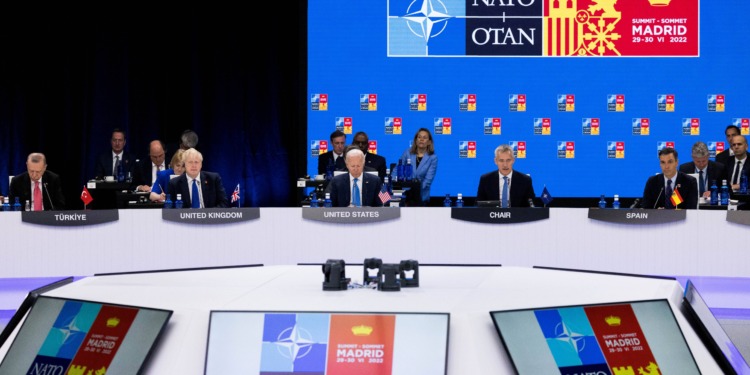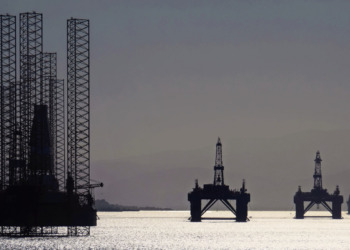World leaders, politicians and diplomats gathered on Thursday for their final session at the NATO summit in Madrid. Here are the outcomes of what has turned out to be the most significant NATO event in decades.
- Russia and China labelled as main long-term security concerns
On Wednesday, NATO adopted a new Strategic Concept – a defence plan updated every decade to take account of changes to the global security environment – which explicitly brands Russia as the “most significant and direct threat” to the alliance.
For the first time in its history, the alliance also described China as a challenge to its allies’ “interests, security and value.”
“The deepening strategic partnership between the People’s Republic of China and the Russian Federation and their mutually reinforcing attempts to undercut the rules-based international order runs counter to our values and interests,” says the mission statement.
China offered an aloof response to NATO’s claims.
“We oppose certain elements clamouring for NATO’s involvement in Asia Pacific, or an Asia Pacific version of NATO based on military alliance,” said China’s ambassador to the United Nations, Zhang Jun. “The outdated Cold War script must not be re-enacted in Asia Pacific. The turmoil in part of the world must not be allowed in Asia Pacific.”
- NATO to boost its high-readiness forces
NATO Secretary-General Jens Stoltenberg announced on Monday that NATO would put “well over” 300,000 troops on high alert. The new troops will be deployed in eight countries on NATO’s eastern flank. However, details remain to be hashed out as to how or when NATO countries will reach this target.
NATO officials said the scale-up should be ready by 2023, but German dignitaries asserted their contribution of about 15,000 soldiers will only be ready by 2025.
While most of these troops will not be permanently based in the east, President Joe Biden announced on Wednesday that the US will establish a “permanent headquarters” in Poland. It will also contribute an additional rotational brigade in Romania, additional deployments in the Baltics, more F-35 squadrons in the UK and more air defence in Germany and Italy.
NATO’s strategy document also comprises a rapid response program to cyberattacks, with a separate package of cyber assistance destined for Ukraine. Since the start of the war, Russian cyberattacks in Ukraine multiplied. They recently spread to Lithuania and raised concerns about more cyber attacks targeting the US and other NATO members in retaliation for assistance to Ukraine.
Related articles: NATO Summit: Alliance Unveils Plans to Bulk up Defences, Turkey Lifts Veto on Sweden and Finland’s Membership | G7 Propose New Energy Partnerships With Developing Economies
- NATO undergoes most significant enlargement in more than a decade
Another big achievement of the summit is the deal between Turkey, Finland, and Sweden, which cleared the way for the Nordic countries’ accession to full NATO membership.
Turkish President Recep Tayyip Erdogan got Finland and Sweden to recommit not to provide any support to Kurdish-led forces in Syria. He told Swedish Prime Minister Madgalena Andersson that he wanted to see a “concrete change of attitude” regarding the country’s policy towards Kurdish independence, and to cooperate over Ankara’s extradition demands for Kurdish guerilla fighters.
Swedish Foreign Minister Ann Linde made it clear that neither Sweden nor Finland ever lent support to Kurdish organizations that could harm Turkey’s authority, “but now it’s explicitly written,” she said.
The Nordic countries will also lift an informal ban on arms sales to Turkey which came into force in 2019 after Turkey had intervened in northern Syria.
Ukraine lauded the news of NATO’s expansion.
“We welcome a clear-eyed stance on Russia, as well as accession for Finland and Sweden,” said Dmytro Kuleba, Ukraine’s foreign minister. “An equally strong and active position on Ukraine will help to protect the Euro-Atlantic security and stability.”
- Spain gets NATO to acknowledge threats to its southern flank
Spain’s central goal for this summit was to make sure that NATO leaders would address the security situation in the south, particularly around its African enclaves of Ceuta and Melilla, which have recently become the epicentre of a migration crisis.
Spain’s Chief of Defence Staff Teodoro López Calderón said on Wednesday that NATO’s new mission statement made explicit the alliance’s commitment to defend the “territorial integrity” of all its member countries, which he added guarantees the security of Ceuta and Melilla.
“The Middle East, North Africa and the Sahara regions face interconnected security, demographic, economic, and political challenges, aggravated by the impact of climate change and food insecurity caused by Russia’s war on Ukraine,” said NATO Secretary-General Jens Stoltenberg.
However, Stoltenberg also said the alliance’s decision to trigger the so-called Article 5 – according to which an attack against one is an attack against all – will always remain a “political decision,” casting doubt over the strength of NATO’s commitment to defend Spain’s African enclaves. He nonetheless added: “Rest assured NATO is there to protect and defend all allies.”
Western powers have also been concerned about rising instability in Mali, where the country’s ruling military junta, backed by Russian mercenaries known as the Wagner Group, is fighting against an Islamist insurgency that extends into the Sahel.
The military alliance announced on Thursday that it would form “defence-building capacity” partnerships with Mauritania and Tunisia, and continue to back Jordan, as part of the global efforts to battle terrorism, which Stoltenberg recognized as “one of the main threats” to allies’ security.
In short, the stakes before the NATO meeting were high, as it was scheduled on the heels of the G7 and Putin’s own threats of placing missiles with nuclear warheads in Belarus. Overall, the meeting delivered, NATO is stronger than ever.
Editor’s Note: The opinions expressed here by Impakter.com columnists are their own, not those of Impakter.com. — In the Featured Photo: 29/06/2022. Madrid, Spain. Prime Minister Boris Johnson attends NATO in Madrid. Featured Photo Credit: Andrew Parsons / No 10 Downing Street.










